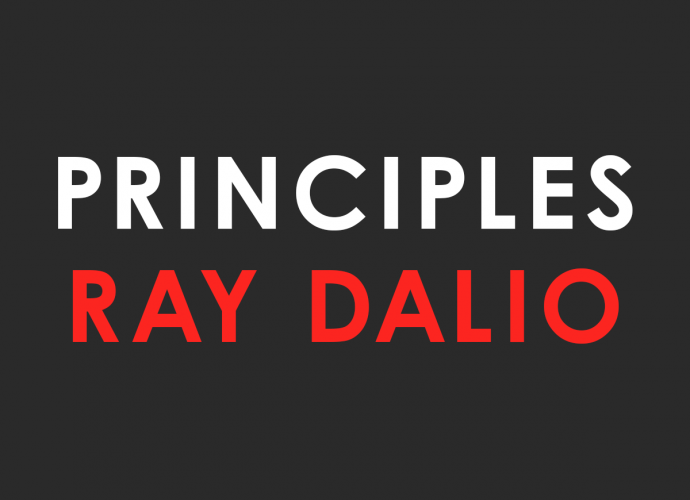As the founder of the world’s largest hedge fund Bridgewater Associates with over $150 billion under management, Ray Dalio shares principles in life and business that make him successful.
In his book “Principles: Life and Work,” Ray Dalio recommends entrepreneurs and leaders to foster radical transparency in their organisations, align their and their employees’ direction with their innate nature, and use a five-step process to make decisions.
A large part of Ray Dalio’s book, covering the principles of decision-making, is devoted to the description of the goal setting and achievement process. Once people realise what appeals to their nature, they need to choose how to invest their time.
Dalio suggests a five-step process for this, comparing pursuit with a machine that has different parts interacting with itself to make it run better. By separating the parts individually into different compartments and addressing them from time to time, one can ensure that anything is within reach.
The five steps are as follows:
- Choosing a goal.
- Identifying and not tolerating problems.
- Diagnosing any problems to the root cause.
- Designing a plan to eliminate those problems.
- Executing the established plan.
Importantly, there must be a team of people working side by side on a project to launch it because no one can excel at every one of these steps. The leader should accept that different people are good at different steps and assign specific people to do each of these steps based on their natural inclinations:
“For example, the big-picture visionary should be responsible for goal setting, the taste tester should be assigned the job of identifying and not tolerating problems, the logical detective who doesn’t mind probing people should be the diagnoser, the imaginative designer should craft the plan to make the improvements, and the reliable taskmaster should make sure the plan gets executed… A team should consist of people with all of these abilities and they should know who is responsible for which steps.”
Here’s other useful tips on organisational engineering that seemed to be most memorable from his book:
On Principles:
“Principles are fundamental truths that serve as the foundations for behavior that gets you what you want out of life. They can be applied again and again in similar situations to help you achieve your goals.”
On Partnerships:
“Remember that in great partnerships, consideration and generosity are more important than money.”
On Choices:
“I learned that if you work hard and creatively, you can have just about anything you want, but not everything you want. Maturity is the ability to reject good alternatives in order to pursue even better ones.”
On Problems:
“You only have so much time and energy; make sure you are investing them in exploring the problems that, if fixed, will yield you the biggest returns.”
On Limits:
“If you’re not failing, you’re not pushing your limits, and if you’re not pushing your limits, you’re not maximizing your potential.”
On Giving Up:
“I saw that to do exceptionally well you have to push your limits and that, if you push your limits, you will crash and it will hurt a lot. You will think you have failed—but that won’t be true unless you give up.”
On Success:
“The greatest gift you can give someone is the power to be successful. Giving people the opportunity to struggle rather than giving them the things they are struggling for will make them stronger.”
On Struggling:
“In time, I realized that the satisfaction of success doesn’t come from achieving your goals, but from struggling well.”
On Strengths and Weaknesses:
“Remember that most people are happiest when they are improving and doing the things that suit them naturally and help them advance. So learning about your people’s weaknesses is just as valuable (for them and for you) as is learning about their strengths.”
On Quality Reflections:
“The most valuable habit I’ve acquired is using pain to trigger quality reflections. If you can acquire this habit yourself, you will learn what causes your pain and what you can do about it, and it will have an enormous impact on your effectiveness.”
If you have found a spelling error, please, notify us by selecting that text and pressing Ctrl+Enter.











Thanks!
Our editors are notified.